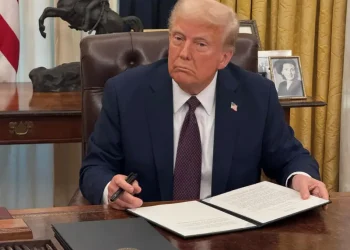Nigerian chess master and social impact advocate, Tunde Onakoya, has addressed the controversy surrounding his recent visit to President Bola Tinubu in Lagos, clarifying that the meeting was apolitical and not an endorsement of the administration.
Onakoya, who recently made global headlines after setting a new Guinness World Record by playing chess for 64 hours straight in New York’s Times Square, drew criticism from some Nigerians after images of him with the President circulated online.
Social media users, particularly those critical of the current economic conditions, questioned the rationale behind the visit, suggesting it clashed with Onakoya’s well-known grassroots advocacy for children in underprivileged communities.
In a detailed response posted on X (formerly Twitter) on Wednesday, Onakoya defended his actions, stating, “To be honoured and received by the President and the highest office in my own country, for this reason, is not a crime. It is not even a national honour, by the way.”
The 29-year-old founder of Chess in Slums Africa emphasized his nonpartisan stance, insisting he has no political ambitions and remains fully committed to his educational mission.
“I have no interest in partisan politics because of the sensitivity of the work that I do. If that ever changes, then I would resign my role as CEO of Chess in Slums Africa. I live for the audience of one, and that is enough,” he wrote.
In recent weeks, President Tinubu has hosted several notable figures including former Ekiti State Governor Ayo Fayose and PDP’s Segun Sowunmi, prompting some observers to label such visits as political endorsements. Onakoya, however, was firm in rejecting that interpretation of his own visit.
“A visit is not an endorsement. I will visit many more people and will continue to sell my chessboards,” he asserted.
Onakoya explained that the meeting was a platform to pitch his ambitious goal of building the world’s largest Chess and STEM education center, a project he believes can reshape learning for children in Nigeria and beyond.
“We’re using chess as a tool to teach cognition. The real impact here is ensuring they have the critical capacity to think for themselves and putting them through formal or vocational education,” he said.
Through Chess in Slums Africa, Onakoya has consistently worked to empower disadvantaged youth by blending intellectual development with education, and his message remains clear: his mission transcends politics and is rooted in systemic change.




















